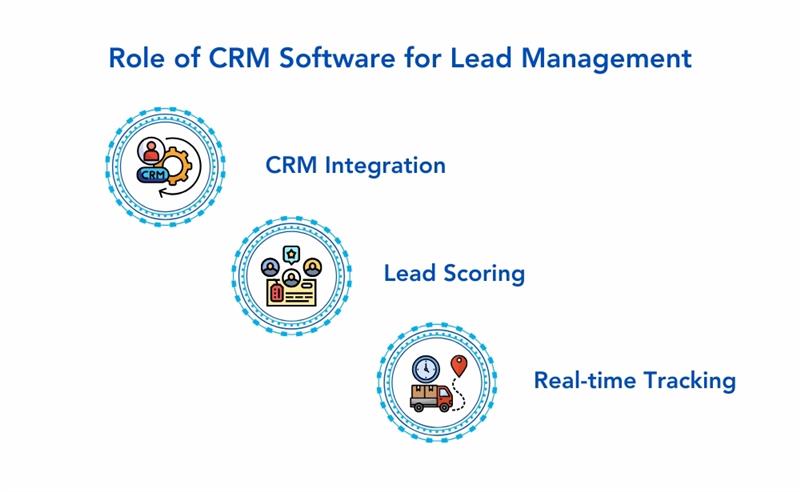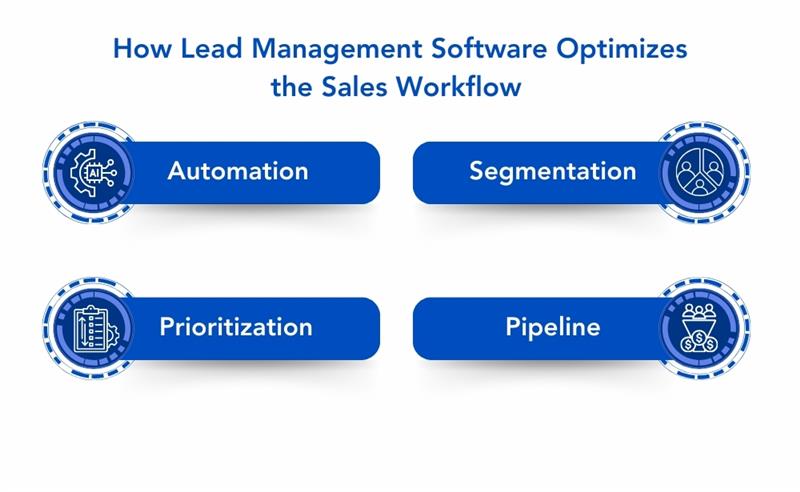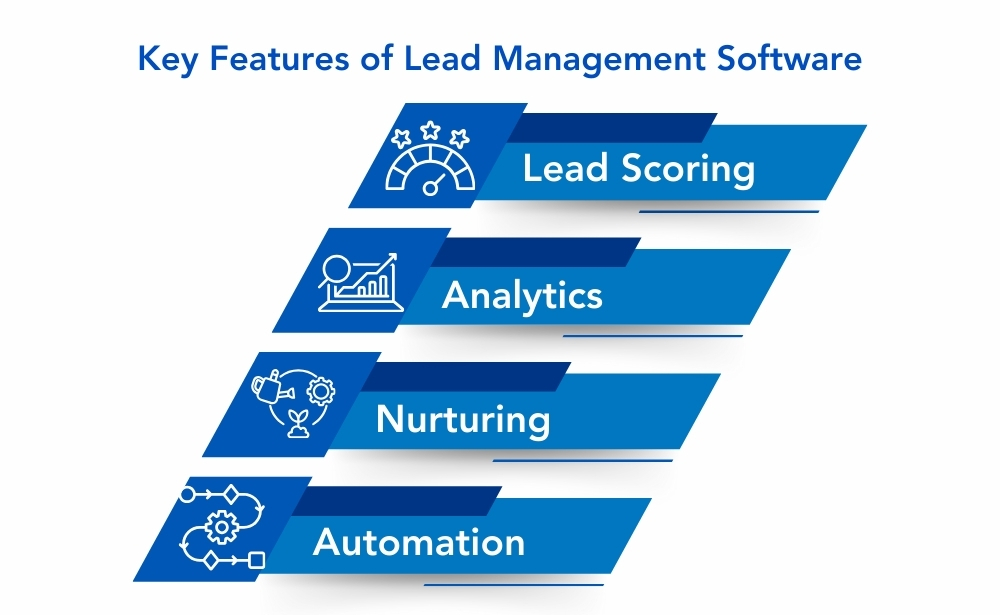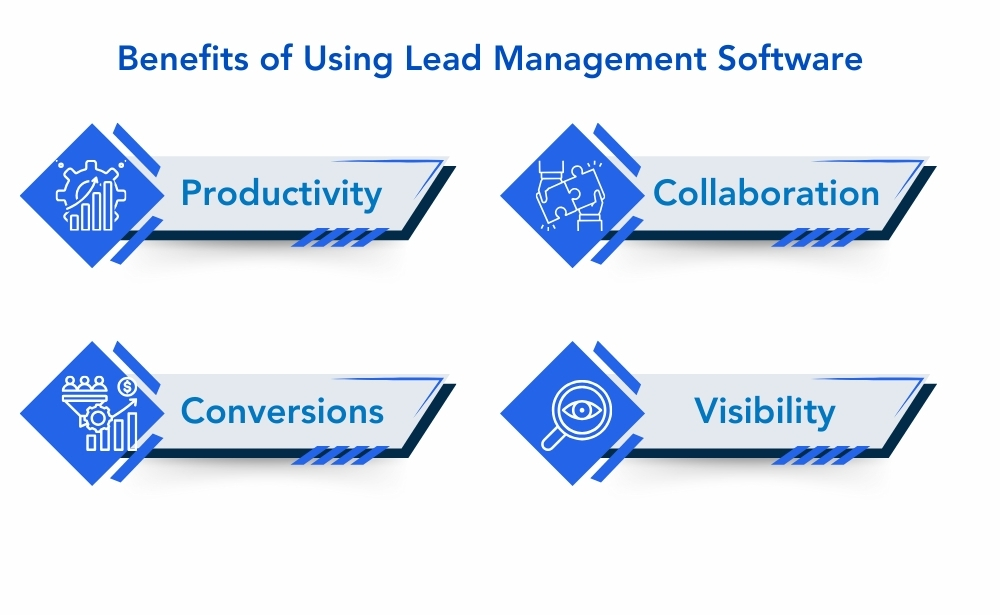Businesses are overwhelmed with leads from various channels — emails, social media, webinars, and even live events in a rapidly growing digital world. But with great leads comes the challenge of efficiently managing them. A poorly managed sales process can lead to missed opportunities, delays, and frustrated prospects. This is where lead management software comes in, acting as the backbone for streamlining the sales workflow, nurturing leads, and boosting conversions.
If you’re still manually tracking leads or using scattered tools for different stages of your sales process, it’s time to rethink your approach. Lead management software not only automates and organizes your workflow but also integrates seamlessly with your existing CRM systems, ensuring no lead slips through the cracks.
In this post, we’ll delve into how lead management software optimizes your sales workflow, highlights key features, and explains how it can skyrocket your sales team’s productivity. By the end, you’ll understand why adopting such software is not just a good idea — it’s essential.
What Is Lead Management Software?
Lead management software refers to a tool that helps businesses capture, track, and manage potential leads through every stage of the sales funnel. This software integrates data from various channels, organizes them, and ensures that the sales team can follow up with the right prospects at the right time.
In simple terms, it automates much of the manual process involved in lead acquisition, qualification, and conversion, saving time and reducing errors. It’s designed to ensure leads are effectively tracked, categorized, and nurtured, driving them toward conversion.
Role of CRM Software for Lead Management
At the core of many lead management solutions is CRM (Customer Relationship Management) software. CRM systems help manage a company’s interactions with current and future customers, offering a 360-degree view of the customer journey. By integrating CRM software for lead management, businesses can effectively organize, score, and prioritize leads based on factors like engagement, potential value, and behavior.
Additionally, lead tracking software ensures that every lead is tracked across multiple touchpoints, giving sales teams real-time insights into their prospects’ activities, behavior, and preferences.

How Lead Management Software Optimizes the Sales Workflow
A smooth sales workflow is the backbone of any efficient sales process. Without a proper system, leads can easily fall through the cracks, and sales teams might end up focusing on the wrong prospects.
Lead management software optimizes the sales workflow in multiple ways:
- Automated Lead Capture & Categorization: Leads can be automatically captured from various sources like websites, landing pages, social media, or even manual entries. This means that every potential lead is immediately entered into the system without requiring manual data entry.
- Prioritization & Segmentation: Based on lead behavior, demographics, and engagement, the software can prioritize leads, ensuring that your sales team focuses their efforts on the most promising prospects. Sales teams can segment leads based on industry, buying intent, or engagement level.
- Streamlined Sales Pipeline: Sales pipeline software within lead management tools helps visualize the lead journey, from the initial touchpoint to conversion. It ensures every lead is followed up at the right stage, minimizing gaps in communication and maximizing conversions.

Key Features of Lead Management Software
For lead management software to truly optimize your sales process, it must offer several key features that support lead nurturing, tracking, and automation.
- Lead Scoring and Prioritization: One of the most valuable features of lead management software is lead scoring. This feature automatically assigns scores to leads based on predefined criteria such as their behavior (clicks, form submissions), demographics, and readiness to purchase. High-scoring leads can be immediately handed off to the sales team for direct follow-up.
- Lead Nurturing Software: Nurturing leads effectively is essential for converting cold prospects into paying customers. Lead management software allows you to automate this process by sending personalized emails, offers, and follow-ups, all tailored to the lead’s position in the sales funnel.
- Real-Time Analytics & Reporting: Real-time insights and reporting are essential for understanding how well your lead management process is performing. With detailed analytics, you can measure conversion rates, identify bottlenecks, and adjust your strategy accordingly.
By automating these tasks, lead management software improves productivity and allows your sales team to focus on building relationships and closing deals.

Benefits of Using Lead Management Software
Adopting lead management software offers a wide range of benefits that can significantly improve your sales process. Below are some of the key advantages:
1. Increased Sales Productivity
By automating tasks like lead tracking, data entry, and follow-ups, your sales team can focus more on engaging with prospects. Studies show that using lead management tools boosts productivity by 14% and improves sales win rates by 12%.
2. Improved Lead Conversion Rates
Lead management software helps businesses nurture leads effectively by providing tailored content and communications. In fact, companies that use automated lead nurturing see a 20% increase in sales opportunities, according to a report by Forrester.
3. Enhanced Collaboration Across Sales Teams
When your entire team is using a centralized system to track and manage leads, it’s easier for them to collaborate. From marketing to sales and customer support, everyone can access the same data, ensuring that no lead is neglected and that the handoff between departments is seamless.
4. Better Visibility into the Sales Process
Lead management software provides managers with a bird’s-eye view of the entire sales pipeline. With better visibility, managers can make data-driven decisions, allocate resources efficiently, and forecast sales more accurately.

Example: How Lead Management Software Improved Sales for XYZ Corp
Let’s take a look at a real-world example to understand the impact of lead management software on a sales process. XYZ Corp, a mid-sized B2B company, was struggling to keep track of the hundreds of leads they received every month. The sales team was overwhelmed, and leads were slipping through the cracks.
After implementing lead management software, XYZ Corp was able to automate their lead capture process, score leads, and prioritize high-value prospects. This resulted in a 30% reduction in response time, and the sales team saw a 25% increase in lead conversion within just six months.
Before the software, sales reps were spending too much time on manual data entry. However, with the software in place, they could focus on closing deals instead of managing spreadsheets. Moreover, the software provided real-time insights, enabling managers to track performance and optimize the sales funnel effectively.
Choosing the Right Lead Management Software for Your Business
Selecting the right lead management software depends on your business needs and goals. Here are a few factors to consider:
- Ease of Integration: Choose software that integrates easily with your existing CRM and marketing tools to avoid disruptions in your workflow.
- Scalability: As your business grows, your lead management solution should be able to scale with you.
- Pricing: Compare pricing models and choose one that fits your budget while providing the essential features you need.
Some popular lead management software options include HubSpot, Salesforce, and Zoho, each offering unique features suited for businesses of different sizes and needs.
Conclusion
In conclusion, lead management software is a powerful tool for optimizing sales workflows, improving lead conversion rates, and boosting overall productivity. By automating repetitive tasks, prioritizing high-value leads, and providing real-time insights, lead management software ensures that your sales process runs smoothly and efficiently.
If you’re ready to take your sales process to the next level, consider exploring lead management software solutions or scheduling a demo with one of the top providers. The right software can transform the way you handle leads and help your team close more deals, faster.
Ready to optimize your sales workflow? Try a free demo of our lead management software and see how it can improve your team’s efficiency and increase conversions. Don’t let another lead slip through the cracks!

